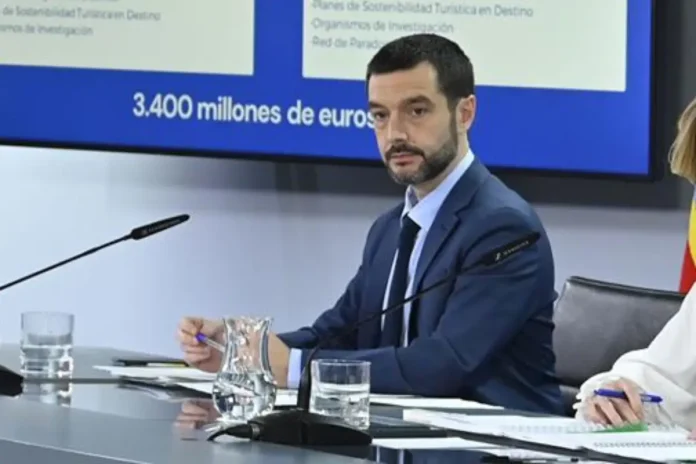Spain has ordered Airbnb to remove nearly 66,000 holiday rental listings from its platform in a sweeping crackdown on unlicensed tourist accommodations, as the country battles a deepening housing affordability crisis that has sparked widespread public protests and political debate.
The Ministry of Consumer Affairs announced on Monday that Airbnb must delist 65,935 properties identified as violating national and regional regulations.
Fraudulent registration details
The majority of these listings lacked mandatory license numbers, used fraudulent or non-existent registration details, or failed to disclose whether the property was managed by an individual or a company. These requirements are considered essential for transparency and consumer protection.

Soaring housing prices
The move, which follows months of escalating tensions between Spanish authorities and short-term rental platforms, comes as housing costs in major cities like Madrid and Barcelona have soared, doubling over the past decade while wages have stagnated.
Many Spaniards blame the proliferation of short-term tourist rentals for driving up rents and squeezing locals out of the housing market, fueling mass protests and prompting calls for urgent government intervention.
– No more excuses. Enough with protecting those who make a business out of the right to housing in our country, Consumer Affairs Minister Pablo Bustinduy said at a press briefing.
Right to housing
He emphasized that the crackdown is part of a broader effort to ensure that economic interests do not override the fundamental right to housing.
The ministry’s directive, backed by a recent ruling from Madrid’s Superior Court of Justice, requires Airbnb to begin by removing an initial batch of 5.800 listings, with further waves of takedowns to follow until all non-compliant properties are addressed.
Airbnb resisting
The court’s decision marks a significant legal victory for the government after Airbnb contested the order, arguing that the company should not be held responsible for verifying the legality of individual listings.
Airbnb responded by announcing its intention to appeal the ruling, describing the government’s methodology as “indiscriminate” and asserting that it unfairly targets listings that may not require a license under Spanish law.
The company maintains that it acts as a neutral intermediary and that responsibility for compliance rests with hosts.
– Regulating Airbnb does not resolve housing challenges or return homes to the market; it merely harms local families who depend on hosting to afford their homes amid rising costs, a spokesperson said.
The Spanish government, however, insists that the crackdown is necessary to restore order to a sector it describes as “chaotic” and “out of control.”
Increasing penalties
Officials say the proliferation of illegal rentals not only undermines housing availability for residents but also exposes consumers to risks due to lack of oversight. The ministry has pledged to continue strengthening legal frameworks, increasing penalties for violations, and enhancing coordination between national and regional authorities to ensure effective enforcement.
The regulation of short-term rentals remains a contentious issue in Spain, the world’s second most visited country, with 94 million foreign visitors expected in 2024.
Barcelona to remove all tourist apartments
Local governments are also taking action; Barcelona plans to phase out all 10,000 licensed tourist apartments by 2028, and Madrid has tightened licensing procedures and oversight.
According to official data, around 321,000 homes in Spain held holiday rental licenses as of late 2024, a 15 percent increase since 2020, while the number of unlicensed properties remains significant.
The government’s latest intervention is widely seen as a pivotal moment in the ongoing struggle to balance tourism, housing affordability, and residents’ rights.


sans ordonnance kamagra distribuer acheter
kamagra acheter de la livraison
Where can i buy enclomiphene no perscription
overnight buy enclomiphene
discount androxal without prescriptions uk
how to buy androxal buy online no prescription
buy dutasteride cheap real
is it legal to buy dutasteride online from canada
cheap flexeril cyclobenzaprine purchase singapore
buy flexeril cyclobenzaprine usa mastercard
how to buy fildena generic online usa
purchase fildena buy in the uk
purchase gabapentin generic is it safe
cheapest buy gabapentin generic online cheapest
buy cheap itraconazole australia where to buy
buy itraconazole with no prescription
cheap staxyn no prescription
discount staxyn cheap canada
buy cheap avodart purchase in australia
online order avodart ireland over the counter
canadian cheapest rifaximin
online order rifaximin cheap with prescription
discount xifaxan generic in canada
how to buy xifaxan australia over the counter
180 kamagra doručeno v sobotu
kde koupit kamagra online